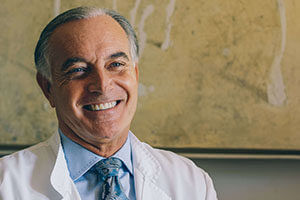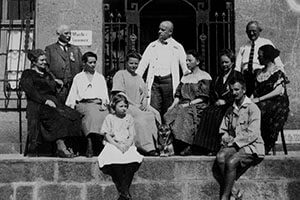THE HIGHEST JEWISH HOLIDAY
Yom Kippur – Our recommendations
Why are the holiest days in many religions linked to fasting?
Jews fast on Yom Kippur, Christians before Easter, Muslims during Ramadan, members of orthodox churches even several times a year. During fasting, worshippers are required to refrain from eating and drinking to be able to concentrate fully on prayer and self-reflection, without any worldly distractions.
As abstention gives the body a chance to rest, fasting makes it easier to access our inner world. The ingestion and processing of food – transporting nutrients, producing digestive juices, moving the stomach and intestines – are slowed down and no longer determine our daily rhythm. Nourishment for the body’s cells comes “from within” – from our fatty tissue.
When the body switches to the fasting metabolism, this should be done in a trusting environment. Liberated from day-to-day activities, we can immerse ourselves in the spiritual dimension. Our senses are sharpened, our mind is in the here and now. Fasting triggers a process of deep cleansing. As old and damaged cells are eliminated on the physical level and their components recycled, this can lead to cleansing on the spiritual level in which we take stock of our own existence and return to what really matters.
Yom Kippur: The highest Jewish holiday is a day of fasting
Yom Kippur is the holiest day in the Jewish faith. Also called the “Day of Atonement”, it is the highlight of the “Ten Days of Repentance”, a time of self-contemplation and penitence that follows Rosh Hashanah, the Jewish New Year.
In 2024, Yom Kippur will take place from Friday 11 October to Saturday 12 October.
According to tradition, each person’s fate in the year to come is written in the “Book of Life” on Yom Kippur. That is why believers are encouraged during this time to reflect on their actions in the past year, make recompenses and ask God and their fellow human beings for forgiveness for their sins.
The evening before, the Kol Nidre is recited, a very emotional prayer in which the community asks for all unfulfilled pledges and oaths of the past year to be declared null and void. It is often chanted with a special melody in the synagogue.
On Yom Kippur, Jewish people fast for 25 hours – from sunset on the previous evening to nightfall on the holiday itself.
How can you prepare for Yom Kippur?
Our fasting expert Dr. Françoise Wilhelmi de Toledo recommends giving up coffee, meat, sweets and alcohol three days before Yom Kippur. It also makes sense to reduce the amount of salt to avoid being thirsty. Instead of a rich “last meal”, you should preferably eat a light dish such as vegetable soup or a plate of vegetables the day before. You should also break your fast gently, for example with potato and vegetable soup. Although your body switches to burning fat when you fast, it has enough reserves to last several weeks, even for people with normal weight. There is therefore no reason to fear any damage.
“When we fast, the body feels good,
but the soul needs nourishment.”
Dr. Otto Buchinger
In Israel, Yom Kippur is taken very seriously. Radio and television channels interrupt their broadcasts, and there is no public transport. The roads are quiet because almost nobody is around. Many Jews, even those who are not very religious, fast and spend the day in contemplation.
Yom Kippur is more than just a religious rite; it is a deep, spiritual experience. Yom Kippur reminds people that although they are imperfect, it is possible to change and grow. It is a day to celebrate the unshakable relationship between man and God and be reassured that a better year may come.








